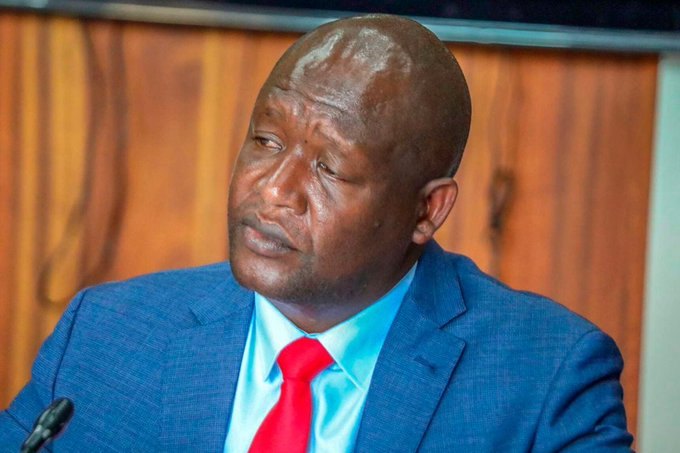
 Kericho Governor Erick Mutai during a past meeting/COURTESY
Kericho Governor Erick Mutai during a past meeting/COURTESYThe impeachment trial process against Kericho Governor Erick Mutai has officially begun, following the formal tabling of his case in the Senate.
The hearing of the matter will be held on plenary after senators abandoned an earlier proposal to establish a special committee to investigate the charges.
It will be held for three consecutive days commencing August 27, 28, and 29.
Mutai, who was impeached by the Assembly last Friday, faces three charges of gross violation of the constitution, abuse of office, and misconduct.
Documents tabled at the Senate by the assembly outline multiple instances of financial impropriety, nepotism, and disregard for the law.
The charges detail a string of allegations ranging from the misappropriation of county funds to illegal appointments and blatant contempt of court orders.
Mutai’s political survival now lies with the senators who are set to consider the matter.
Here is a breakdown of the charges and particulars.
Gross violation of the constitution and misuse of county funds
Mutai is accused of authorising fictitious payments worth Sh85.7 million for undelivered goods, inflated contracts, and incomplete works.
Among the irregular claims were the supposed maintenance of 15 residential houses, overpriced supplies, and agricultural inputs that never reached farmers.
He is further charged with contravening procurement laws by splitting contracts, neglecting to conduct market surveys, and paying suppliers in advance despite Kericho County accumulating pending bills of Sh1.1 billion.
The petition also accuses him of diverting over Sh325 million meant for the national agricultural value chain project, with only 19 out of 30 wards benefiting, and many farmers receiving substandard inputs.
Similarly, under the Financing Locally-Led Climate Action (FLOCCA) initiative, it is alleged that projects were distributed unfairly, with his home ward of Chemosot receiving a disproportionate Sh21.7 million.
Mutai is further accused of irregularly launching the “Equaliser Kazi Mtaani” initiative in August 2024 without Assembly or Controller of Budget approval.
This according to the charge, led to the loss of Sh39 million, and misuse of funds meant for strategic projects, such as paying Sh8.5 million for the upgrade of Kunyak dispensary despite no work being done.
Additionally, he allegedly coerced county executives to divert departmental funds for personal use, misused emergency funds meant for victims of the Londiani accident, and presided over irregular tender awards.
Misappropriation of publicly raised funds
The Governor is further accused of mismanaging funds raised for the victims of the Londiani junction accident tragedy, in which over Sh9 million was allegedly lost.
He is said to have awarded direct tenders for services during the fundraiser and requiem mass, contrary to procurement laws, and failed to honour commitments to implement the post-tragedy report.
Abuse of office
Mutai is alleged to have engaged in nepotistic and irregular appointments, including hiring his brother as a revenue clerk and promoting his aide’s wife as a nurse ahead of more qualified candidates.
He is also accused of illegally appointing a County Attorney despite the presence of a substantive officeholder, a move later nullified by the Employment and Labour Relations Court.
Further accusations include politicising recruitment of doctors and teachers despite lack of funds, irregular transfers of health staff without County Public Service Board input, and arbitrary dismissal of senior county officials, including 10 County Executive Committee Members, six Chief Officers, and two Chiefs of Staff.
The governor is also accused of undermining the County Assembly’s oversight role by attempting to direct the Speaker on how to conduct Assembly summons.
Gross misconduct
In one of the most serious accusations, Mutai allegedly led an illegal land invasion soon after assuming office, where he and a mob invaded private property in Kericho town belonging to a local businessman, tore down its fence, and designated it as a county dumpsite.
This was reportedly done in contempt of a court order and without necessary approvals from NEMA or gazettement, exposing the county to potential damages and legal costs.













